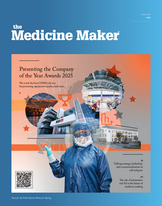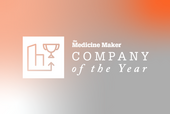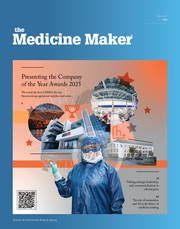Is it Time to Reevaluate Our Priorities?
The COVID-19 vaccines demonstrate what’s possible when disease is tackled as a genuine priority
“The whole research and development community is working hard to bring us that [COVID-19] breakthrough sooner rather than later,” wrote Stephanie Sutton in her November editorial (1). And here we are, just one month later, with not one but three breakthroughs.
Pfizer (2) and Moderna (3) are both claiming around 95 percent efficacy in their vaccine studies, involving 44,000 and 30,000 volunteers respectively. And then we had AstraZeneca and the University of Oxford announcing that their vaccine, which should be cheaper and easier to distribute than the aforementioned mRNA approaches, is 70 percent effective (4). In a serendipitous turn, some volunteers were mistakenly given shots half the planned strength, which turned out to be more effective than the original dose – 90 percent as compared to the original 60 percent (hence the 70 headline figure – and an additional dose of controversy).
It’s important to not get carried away – however desperate we all are to see the back of this pandemic. As Peter Doshi writes in the BMJ (5), we don’t know about the vaccines’ ability to save lives, prevent infection, the efficacy in important subgroups, or the performance at three, six or 12 months. But if (and that’s a big if) we now have the means to beat COVID-19 in the near future, the industry has managed to accomplish a feat that would ordinarily take years – even decades. How was this possible? And are there any lessons we could apply to other diseases?
SARS-CoV-2 may be, as Stat News pointed out (6), an easier target for potential vaccines than other pathogens. But a major factor has to be money. Both the funding received by companies developing vaccines (close to a billion dollars from the US government in Moderna’s case), and the prospect of huge financial rewards should they succeed – a combination of state and market incentives.
As a global society, we must ask ourselves a big question: Are we really prioritizing medicine? We might not think of cancer or Alzheimer’s as “emergencies” (unless we are directly affected) – but they have a combined economic impact that must surely exceed that of COVID-19 – especially over the course of decades. Though we couldn’t go after one disease at the expense of all others (consider the hidden death toll of the pandemic), perhaps we could achieve remarkable things, if governments – with the support of the general population – made tackling diseases a genuine priority.
- Stephanie Sutton, “Beyond the Storm,” The Medicine Maker (2020). Available at: https://bit.ly/2VkGAJq
- Pfizer, “Pfizer and BioNTech Conclude Phase 3 Study of COVID-19 Vaccine Candidate, Meeting All Primary Efficacy Endpoints” (2020). Available at: https://bit.ly/3mnKX1X
- Moderna, “Moderna’s COVID-19 Vaccine Candidate Meets its Primary Efficacy Endpoint in the First Interim Analysis of the Phase 3 COVE Study” (2020). Available at: https://bit.ly/33uKX9a
- AstraZeneca, “AZD1222 vaccine met primary efficacy endpoint in preventing COVID-19” (2020). Available at: https://bit.ly/36naZgA
- BMJ, “Peter Doshi: Pfizer and Moderna’s “95% effective” vaccines—let’s be cautious and first see the full data” (2020). Available at: https://bit.ly/37gemVG
- Stat News, “‘A huge experiment’: How the world made so much progress on a Covid-19 vaccine so fast” (2020). Available at: https://bit.ly/39tpy3S

Over the course of my Biomedical Sciences degree it dawned on me that my goal of becoming a scientist didn’t quite mesh with my lack of affinity for lab work. Thinking on my decision to pursue biology rather than English at age 15 – despite an aptitude for the latter – I realized that science writing was a way to combine what I loved with what I was good at.
From there I set out to gather as much freelancing experience as I could, spending 2 years developing scientific content for International Innovation, before completing an MSc in Science Communication. After gaining invaluable experience in supporting the communications efforts of CERN and IN-PART, I joined Texere – where I am focused on producing consistently engaging, cutting-edge and innovative content for our specialist audiences around the world.



















